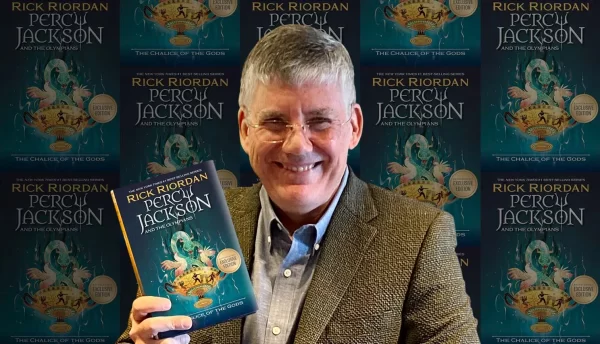“Never Have I Ever” not been a comfort show
September 3, 2022
The hit netflix show, “Never Have I Ever,” returns for a third season and fans could not be more overjoyed. With familiar favorites returning to the screen, such as Devi Vishwakumar, played by Maitreyi Ramakrishnan, and Paxton Hall-Yoshida, portrayed by Darren Barnet, the show was bound to be a success.
The plot of this season follows Devi as she yet again makes the absolute worst decisions possible. This comes as no surprise to the viewers, who are well aware of her recurring habit of overthinking to the point of no return.
Devi is going into her junior year with a near “perfect” life. In her eyes, being with teen heartthrob, Paxton, is all she needs to completely change her social status at school. So when she walks in one day, holding hands with her new boyfriend Paxton, she feels this year is going to be one that alters people’s already established views of her as the smart, unpopular girl.
While people do notice her more often now that she is connected to her popular lover, Devi is not ready to face the more negative attention that she is now forced to receive. With the hostile comments she is enduring, it is normal for an individual to feel jealous; therefore, leading to a bit of good old insecurity. However, when surrounded by multiple other potential love interests, will Devi stay in a relationship that makes her feel this way?
Overall, this season did an excellent job at showing one thing: character development. While the obvious first thought would be that the main characters, such as Devi, are the ones showing major signs of positive changes, the real star of this season would have to be her mother, Nalini Vishwakumar, played by Poorna Jagannathan.
Over the course of the short ten episodes, Nalini completely shifts her attitude both as a mother and as a friend. She is able to step out of the previously established bubble she built around both herself and her daughter, and instead learn to approach problems with two important factors: reason and compassion.
While the purpose of this show is to give viewers something lighthearted that will provide them with a sense of comfort, there are still prominent issues that are discussed throughout. These include struggles with mental health, family conflicts, and coming to terms with one’s sexuality. By not having perfect characters, people are able to relate more to them and develop deeper connections, instead of only sticking to surface level problems.
While Devi faces many complications throughout her high school life, the one most significantly shown is her low success rate when it comes to high school boys. She struggled the previous two seasons with making a decision between two guys, but when seemingly incredible Nirdesh, portrayed by Anirudh Pisharody, makes an appearance, Devi is understandably even more conflicted.
This conflict ultimately leads to the most simple example that can be given: a game of tug of war. As the twists and turns of her high school relationships are revealed, Devi’s thoughts go back and forth in a never-ending cycle. A cycle that is sometimes so destructive, viewers need to pause the show in an act of protest to Devi’s questionable plans.
All things considered, the third season of “Never Have I Ever” did not disappoint. While some argue that it is simply another cliche teen drama, others realize that while this is true, it does not take away from this absolute masterpiece. The lessons Devi learns throughout the course of her story, such as ones regarding her relationships with her friends, lovers, and relatives, are ones that differentiate this show and make it one worthy of a watch by anyone.














